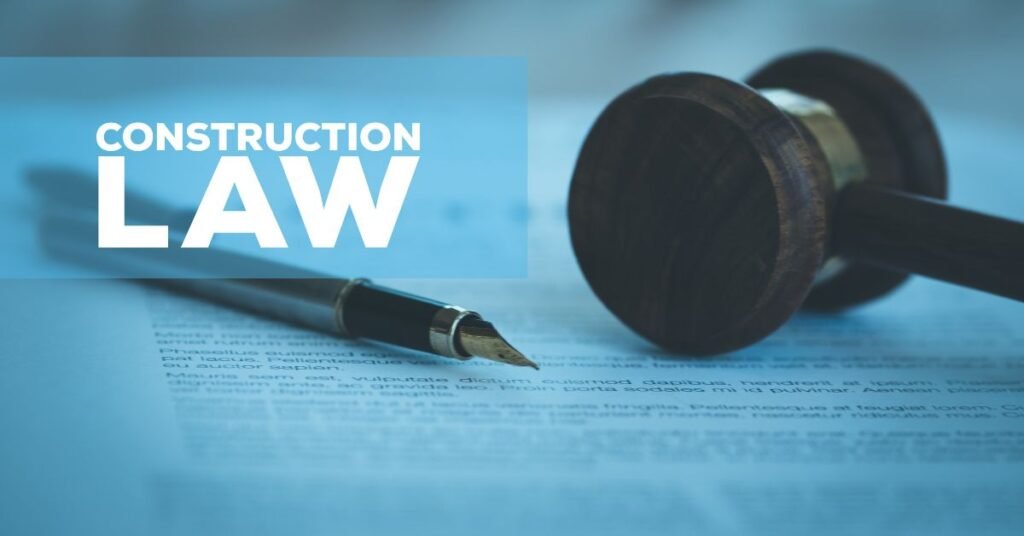Construction projects are often complicated and involve high stakes. There are certain issues that are peculiar to construction projects. In this article, we will discuss some of the most frequently encountered issues in today’s construction industry in the UAE.
Construction Disputes: Delay Liquidated Damages
All construction contracts contain provisions that penalise a contractor for late completion of a project. These provisions provide for a predetermined amount of damages known as Delay Liquidated Damages, which are to be paid by the contractor when there is a delay by the contractor in achieving specific milestones or reaching completion.
Parties are allowed to specify in their contracts the amount of damages that a breaching party has to pay in case of a breach. However, even if the amount of damages is clearly stipulated in a contract, the UAE Courts may adjust the amount to reflect the actual loss. This is based on Article 390 of the UAE Civil Code, which states that:
(I) The contracting parties may fix the amount of compensation in advance by making a provision therefor in the contract or in a subsequent agreement, subject to the provisions of the law.
(II) The Judge may in all cases, upon the application of either of the parties, vary such agreement so as to make the compensation equal to the loss, and any agreement to the contrary shall be void.
The first clause of the Article allows the parties to agree to a fixed amount of damages, such as having a delayed liquidated damages clause in the contract. However, the second clause of the said article allows the Judge, upon a request from either party, to adjust the agreed amount to a level where it is equal to actual loss.
Article 390(2) is a mandatory provision and supersedes contractual provision. It is stated therein that a Judge can make the compensation equal to the actual loss, and any agreement to the contrary shall be void.
Good Faith Obligation
Good faith is an essential principle of UAE Construction Law. Article 246 of the UAE Civil Code imposes an obligation on the parties to exercise their contractual rights and fulfil their contractual obligations in a manner that is consistent with the requirements of good faith. For example:
– obligation of cooperation,
– obligation to pursue the most suitable method of performance,
– obligation to transparently disclose any matter that may influence the performance of the contract.
However, it should be noted that the principle of good faith is limited to the scope, purpose, and terms of the contract and cannot be used to vary the express terms of the contract. This is based on the Islamic principle of ‘Al aqd shareeat al Mota’aqedeen‘, which provides that in the interpretation of contracts, effect is given to the terms of a contract, which represents the law of the parties.
Therefore, performing a contract in good faith is not an independent standalone obligation. This principle cannot be used too liberally. Article 246 sets a standard for how the parties exercise their respective rights and fulfill their obligations.
Hence, Article 246 is usually used in combination with other obligations under the contract or the law. The UAE Courts do not use the principle of Good Faith to alter the contract clauses or contractual rights & obligations. The UAE Courts only require that these rights be exercised and obligations fulfilled in a manner consistent with Good Faith requirements.
Time Bar Clauses
Construction contracts usually contain time bar clauses/notice provisions that require parties to adhere to a specific deadline for notifying claims. Employers often rely on time bar clauses to deny a compensation claim. The consequences for a contractor who delays in applying for a claim can differ depending on the contractual terms and also the governing law of the contract.
The UAE Civil Code neither expressly prohibits time bar clauses nor enforces them. UAE Law provides that parties are free to agree to the contract terms and are required to perform their obligations under the contract. However, the contractual provisions are enforceable as long as they do not go against or contradict the mandatory provisions of the UAE Law.
Under the UAE Commercial Code, the limitation period for a commercial claim is ten years. Therefore, if the contract creates a limitation period which is different to the one laid down by law, the time bar clause would be deemed to be void under UAE law as the same goes against the limitation period prescribed by UAE Law (which is a mandatory provision of the UAE Civil Code).
The UAE Civil Code further provides that if a right is being exercised solely to harm the interests of the other party, then the same is also an unlawful exercise of rights and is against the principle of Good Faith.
As such, if the contractor’s claim is justified on its merits, and the employer cannot prove any prejudice it suffered from not receiving timely notification of the claim, the benefit to the employer (being a dismissal of the Contractor’s claim on this basis) would not only be disproportionate to the harm to the contractor (in being deprived of compensation for losses incurred), it would also allow the employer to avoid just consequences of its acts/omissions.
The aforesaid provisions translate to a position that a party should not be time-barred and lose its otherwise valid entitlement to an extension of time merely due to a failure to comply with a contractual notice.
Construction Disputes: Suspension of Works Due to Non-Payment
It is quite common to have suspension clauses in construction contracts whereby the contractor has a right to suspend the performance of its works under certain circumstances, such as non-payment.
However, sometimes, the contract does not have a clause entitling a contractor to suspend its performance. If the contract is silent on this point, it is essential to consider whether the law governing the contract provides a right to suspend.
Under UAE law, the contractor has a right to suspend the performance of its works even in the absence of a contractual provision. Article 247 of the UAE Civil Code permits a party to the contract to suspend the performance of its obligations if the other party has failed to perform its obligations.
For example, if a party is not making payment, then the other party can refuse to continue with the work. Ideally, A contractor should first send a notice to the employer and require rectification of the breach before exercising the right of suspension under UAE Law.
Construction Disputes: Concurrent Delays
Concurrent delay refers to a situation where a given period of delay can potentially be attributed to several events falling within both parties’ spheres of responsibility. The UAE Law does not have a developed body of law on how to deal with concurrent delay.
The first step would be to enforce any contractual clause that addresses compensation for concurrent delay. In the absence of any such clause specifically addressing concurrent delay, the UAE Courts would look at the mutual intentions of the parties as deduced from the contract, contemporary correspondence, commercial customs, and practices.
If no express or implied provision can be deduced from the contract, then the position under UAE law is less clear. However, while the issue of competing causes of delay and concurrency are not expressly addressed in the UAE Civil Code, it is generally understood that various principles of UAE law favour an apportionment approach.
The UAE Law does not have a developed body of law on how to deal with concurrent delay.
Sameer A. Khan
Founder & Managing Partner SK Legal
Completion and Taking-Over
Under the UAE Civil Code, an employer is obliged to take delivery of completed contract works and pay the contractor the agreed price accordingly. Article 884 of the UAE Civil Code contains an obligation on the part of the employer to take over a project when the contractor completes it.
If there is a dispute between the parties regarding the completion of the project, the UAE Courts typically determine, with the help of a court-appointed expert report, whether the construction reached a stage where the employer could use the project for its intended purpose and whether any outstanding minor tasks could be completed without significant inconvenience.
Damages in Case of Non-Completion of Work
While claiming damages against a contractor, it is important to distinguish between late completion and non-completion of works. They are different concepts. The original obligation is completion of works within the agreed time frame and Delay Liquidated Damages (Delay LDs) are imposed when this obligation is violated. However, Delay LDs are not the correct remedy in case of non-completion of works.
A construction contract usually provides separate remedies for late completion and non-completion of works. If a contract does not provide a remedy for partial performance or non-completion, the employer may claim damages under UAE Law if he can prove that he has suffered damages because the contractor failed to complete the works.
For example, if the contractor abandons the works, the employer may claim damages for costs incurred in completing the works by the third-party contractor (whom he was forced to engage for completion of balance works).
This was held, e.g., in the Dubai Court of Cassation judgment in Appeal No. 2020 /922, which stressed that delay damages could not be claimed from the contractor if he did not carry out the contracting works assigned to him. However, an employer has the right to claim compensation from the contractor if he establishes that he has sustained damages from non-fulfilment of works in whole or in part.
Attachment of Bank Guarantees in UAE Courts for Construction Arbitration Cases
As per the UAE Arbitration Law, a party can file an application seeking a precautionary attachment of the bank guarantees before it commences arbitral proceedings. However, the applicant must convey to the Court that he intends to begin the arbitration immediately.
Practically, the Court will require more than a mere assertion within the application that the applicant intends to commence the arbitration immediately. The applicant will need to attach documentary evidence in the form of letters/notices in which the applicant has already clearly conveyed to the counterparty its intention to commence arbitration.
An alternative would be a document issued by the relevant arbitral body confirming the applicant’s receipt of a Request for Arbitration.
Get Expert Guidance on the UAE Construction Law and Disputes
If you’re facing legal challenges in construction projects, SK Legal Consultants are your go-to experts. Our expert team, well-versed in the complexities of UAE Construction Law, is committed to guiding you through every step and ensure that your interests are robustly represented and protected.
We at SK Legal provide the following services:
- Comprehensive legal consultancy: Whether you’re dealing with civil or commercial disputes, our team is equipped to provide you with the best legal advice.
- Support during negotiations: Our legal advisory services extend to assisting clients during crucial negotiations, ensuring their interests are always protected.
- Collaboration with local law firms: We understand the nuances of local jurisdictions. We collaborate with licensed local law firms to oversee court cases, especially in the DIFC, Dubai, and Sharjah courts.
Don’t navigate these intricate legal waters alone. For tailored advice and reliable support in construction law disputes, contact us at [email protected].
Frequently Asked Questions About the UAE Construction Law
In the UAE, construction projects must adhere to specific legal requirements, including obtaining necessary permits and approvals, complying with safety and environmental regulations, and following the UAE Civil Code’s provisions for construction contracts. Additionally, adherence to local municipality guidelines and federal laws is mandatory.
The UAE construction industry primarily follows the British Standards (BS) and American Standards (ASTM), alongside local standards set by the Emirates Authority for Standardization and Metrology (ESMA). These standards ensure quality, safety, and efficiency in construction projects.
In the UAE, common construction contracts include lump-sum contracts, cost-plus contracts, design and build contracts, and turnkey contracts. Each type has its own characteristics and is chosen based on project requirements, risk allocation, and budget considerations.
ESMA (Emirates Authority for Standardization and Metrology) regulation in the UAE refers to the standards and guidelines set for various industries, including construction. These regulations ensure compliance with international quality and safety standards, covering aspects like building materials, environmental sustainability, and energy efficiency.
Parties are allowed to specify in their contracts the amount of damages that a breaching party has to pay in case of a breach. However, even if the amount of damages is clearly stipulated in a contract, the UAE Courts may adjust the amount to reflect the actual loss.
The UAE Civil Code imposes an obligation on the parties to exercise their contractual rights and fulfill their contractual obligations in a manner that is consistent with the requirements of good faith. However, it should be noted that the principle of good faith is limited to the scope, purpose, and terms of the contract and cannot be used to vary the express terms of the contract.
The UAE Civil Code neither expressly prohibits time bar clauses nor enforces them. UAE Law provides that parties are free to agree to the contract terms and are required to perform their obligations under the contract. However, the contractual provisions are enforceable as long as they do not go against or contradict the mandatory provisions of the UAE Law. For more detail, please read the Time Bar Clauses section in the Article.
Under the UAE Civil Code, an employer is obliged to take delivery of completed contract works and pay the contractor the agreed price accordingly. Article 884 of the UAE Civil Code contains an obligation on the part of the employer to take over a project when the contractor completes it. Disputes over project completion are often resolved with the help of court-appointed experts.
A construction contract usually provides separate remedies for late completion and non-completion of works. If a contract does not provide a remedy for partial performance or non-completion, the employer may claim damages under UAE Law if he can prove that he has suffered damages because the contractor failed to complete the works.
Under UAE law, the contractor has a right to suspend the performance of its works even in the absence of a contractual provision. Article 247 of the UAE Civil Code permits a party to the contract to suspend the performance of its obligations if the other party has failed to perform its obligations.
Disclaimer
This publication does not provide any legal advice and it is for information purposes only. You should not rely upon the material or information in this publication as a basis for making any business, legal or other decisions. Therefore, any reliance on such material is strictly at your own risk.
Share This Post On:
Sameer A Khan
Related Posts
Let SK Legal Consultants be Your Trusted Partner in Securing Favourable Outcomes
Don’t navigate these intricate legal waters alone. For tailored advice and reliable support in construction law disputes, contact us at [email protected].







